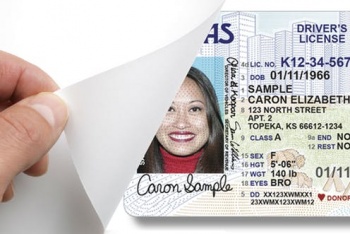Difference between revisions of "Doxxing"
| Line 1: | Line 1: | ||
| − | [[File:Doxxing_cover.jpg|350px|right]]'''Doxxing''', also spelled '''doxing''', is the releasing or publishing of an individual’s personal information (1). This is used to intentionally | + | [[File:Doxxing_cover.jpg|350px|right]]'''Doxxing''', also spelled '''doxing''', is the releasing or publishing of an individual’s personal information (1). This is used to intentionally reveal the identity of somebody who would like to remain anonymous individual. Personal information includes but is not limited to: an individual’s real name, address, workplace, phone number or other personal information one does not wish to share (2). There are a variety of ways to acquire this information such as social media, the use of online data brokers and any other public record available. Doxxing has become more popular with the rise of technology and the increased accessibility to public information. There are many results of doxxing such as harassment, threats, unwanted attention and a breach of privacy. This raises many ethical issues by defaming and slandering an individual with the unwanted releasing of personal information. |
== Background == | == Background == | ||
The word doxxing comes from the word “docs” in reference that in many cases it is documented that is released in order to remove anonymity (3). Doxxing initially started around the early 2000s when social media started to become popular and internet users started to post information our themselves online (4). Social media has played a large part in the increasing problem of this issue as well as the increased accessibility to public records. A doxxer uses a small amount of information, such as an email address or part of a name, to trace another online user to other social media accounts and platforms. Once the information is put all together it is leaked online for the public to see, taking away not only the user’s anonymity but the right to their privacy. Anonymity plays a large role in the participation of doxxing. More people feel safe participating in this form of online harassment because they, themselves are protected by anonymity. | The word doxxing comes from the word “docs” in reference that in many cases it is documented that is released in order to remove anonymity (3). Doxxing initially started around the early 2000s when social media started to become popular and internet users started to post information our themselves online (4). Social media has played a large part in the increasing problem of this issue as well as the increased accessibility to public records. A doxxer uses a small amount of information, such as an email address or part of a name, to trace another online user to other social media accounts and platforms. Once the information is put all together it is leaked online for the public to see, taking away not only the user’s anonymity but the right to their privacy. Anonymity plays a large role in the participation of doxxing. More people feel safe participating in this form of online harassment because they, themselves are protected by anonymity. | ||
Revision as of 00:44, 14 March 2019
Doxxing, also spelled doxing, is the releasing or publishing of an individual’s personal information (1). This is used to intentionally reveal the identity of somebody who would like to remain anonymous individual. Personal information includes but is not limited to: an individual’s real name, address, workplace, phone number or other personal information one does not wish to share (2). There are a variety of ways to acquire this information such as social media, the use of online data brokers and any other public record available. Doxxing has become more popular with the rise of technology and the increased accessibility to public information. There are many results of doxxing such as harassment, threats, unwanted attention and a breach of privacy. This raises many ethical issues by defaming and slandering an individual with the unwanted releasing of personal information.Background
The word doxxing comes from the word “docs” in reference that in many cases it is documented that is released in order to remove anonymity (3). Doxxing initially started around the early 2000s when social media started to become popular and internet users started to post information our themselves online (4). Social media has played a large part in the increasing problem of this issue as well as the increased accessibility to public records. A doxxer uses a small amount of information, such as an email address or part of a name, to trace another online user to other social media accounts and platforms. Once the information is put all together it is leaked online for the public to see, taking away not only the user’s anonymity but the right to their privacy. Anonymity plays a large role in the participation of doxxing. More people feel safe participating in this form of online harassment because they, themselves are protected by anonymity.
